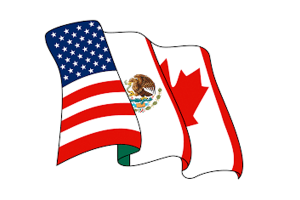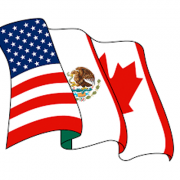Chamber of Commerce conditions support for Trump’s USMCA deal on lifting metals tariffs for Mexico and Canada
The Chamber of Commerce announced Monday that it would lobby Congress to pass the U.S.-Mexico-Canada Agreement on trade when it comes up for a vote next year, but that support was contingent on exempting Canada and Mexico from the U.S. tariffs on steel and aluminum imports.
The announcement comes as Democratic and Republican lawmakers have been hedging on whether they would support the deal, which would replace the 1993 North American Free Trade Agreement. The Chamber’s support could be crucial in tipping the balance in Congress.
“After carefully assessing the new deal and its impact on our members, the U.S. Chamber of Commerce has thrown its support behind the USMCA, which is critical to maintaining strong economic growth in the U.S.” Chamber President Tom Donohue said in a blog post Monday. “We will work with the administration and other stakeholders to address a handful of outstanding issues and secure approval of the USMCA in Congress.”
The Chamber had previously complained that the deal’s language limiting protections for investors and stiffening of the “rules of origin” for when autos can be duty-free were problematic. It pointedly did not endorse the deal when it was announced in October. However, the trade association’s biggest complaint has been that deal’s announcement did not lead to the administration restoring Canada and Mexico’s exemptions from the Trump administration’s 25 percent tariffs on steel and 10 percent ones on aluminum.
Donohue said Monday restoring the exemptions was “a critical first step” to ensure the deal’s passage. The exemptions were only removed, he argued, as a negotiating tactic for the USMCA deal, so there’s no reason to maintain them now that the talks are over. “Every week that the tariffs remain in place, $500 million in U.S. imports and exports are affected, inflicting significant harm on American workers, farmers, and ranchers. They must be eliminated without delay,” he said.
He added that he disagreed with the administration’s announced plan to formally withdraw from NAFTA as a tactic to pressure Congress to approve USMCA, arguing it was “neither necessary nor productive and could actually cost votes.”
Washington Examiner / Sean Higgins / December 10


